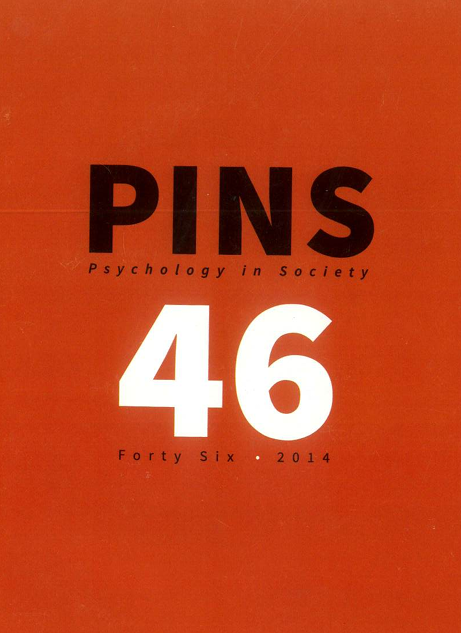Chewing the fat: Feminist analyses of neo-liberal discourses on obesity
DOI:
https://doi.org/10.17159/2309-8708/2014/n46a18Abstract
Tischner, I (2013) Fat Lives: A feminist psychological exploration. (Women and Psychology series.)
London & New York: Routledge.
ISBN: 978-0-415-68094-3 pbk.
Pages ix + 166.
Apart from the material that the domain of popular media literally sells to us, it also gives us clues as to what cultural products and social constructs are being produced and presented for broader discursive consumption, usually to ideological ends far more serious than the forms in which they are conveyed. Take the issue of health and more specifically, body size. Although there has always been significant emotional, political and economic currency in the topic of health, there is currently an onslaught of messages and images that speak to a notion of health informed by a particular construction of the overweight or obese body. Follow the thread of seemingly nonsensical reality television (“The biggest loser”), seemingly innocuous news headlines (“What caused the obesity crisis in the West?”; “Most obese South Africans in denial”), or advertisements (Coca cola’s anti-obesity ad campaign – in the United States), unpack the meaning making occurring beneath the surface and you are likely to find rather sober proscriptions governing our lives and bodies - often with our “manufactured consent”. Although far more visible in the UK and US, these pronouncements on fat bodies are gaining discursive momentum here in South Africa.
Downloads
Downloads
Published
How to Cite
Issue
Section
License
This journal is an open access journal, and the authors' and journal should be properly acknowledged, when works are cited.
Authors may use the publishers version for teaching purposes, in books, theses, dissertations, conferences and conference papers.
A copy of the authors’ publishers version may also be hosted on the following websites:
- Non-commercial personal homepage or blog.
- Institutional webpage.
- Authors Institutional Repository.
The following notice should accompany such a posting on the website: “This is an electronic version of an article published in PINS, Volume XXX, number XXX, pages XXX–XXX”, DOI. Authors should also supply a hyperlink to the original paper or indicate where the original paper (http://www.journals.ac.za/index.php/pins) may be found.
Authors publishers version, affiliated with the Stellenbosch University will be automatically deposited in the University’s’ Institutional Repository SUNScholar.
Articles as a whole, may not be re-published with another journal.
The copyright of the article(s) lies with the author(s).
The copyright of the journal lies with PINS-psychology in Society.
The following license applies:
Attribution CC BY-NC-ND 4.0 - https://creativecommons.org/licenses/by-nc-nd/4.0/

